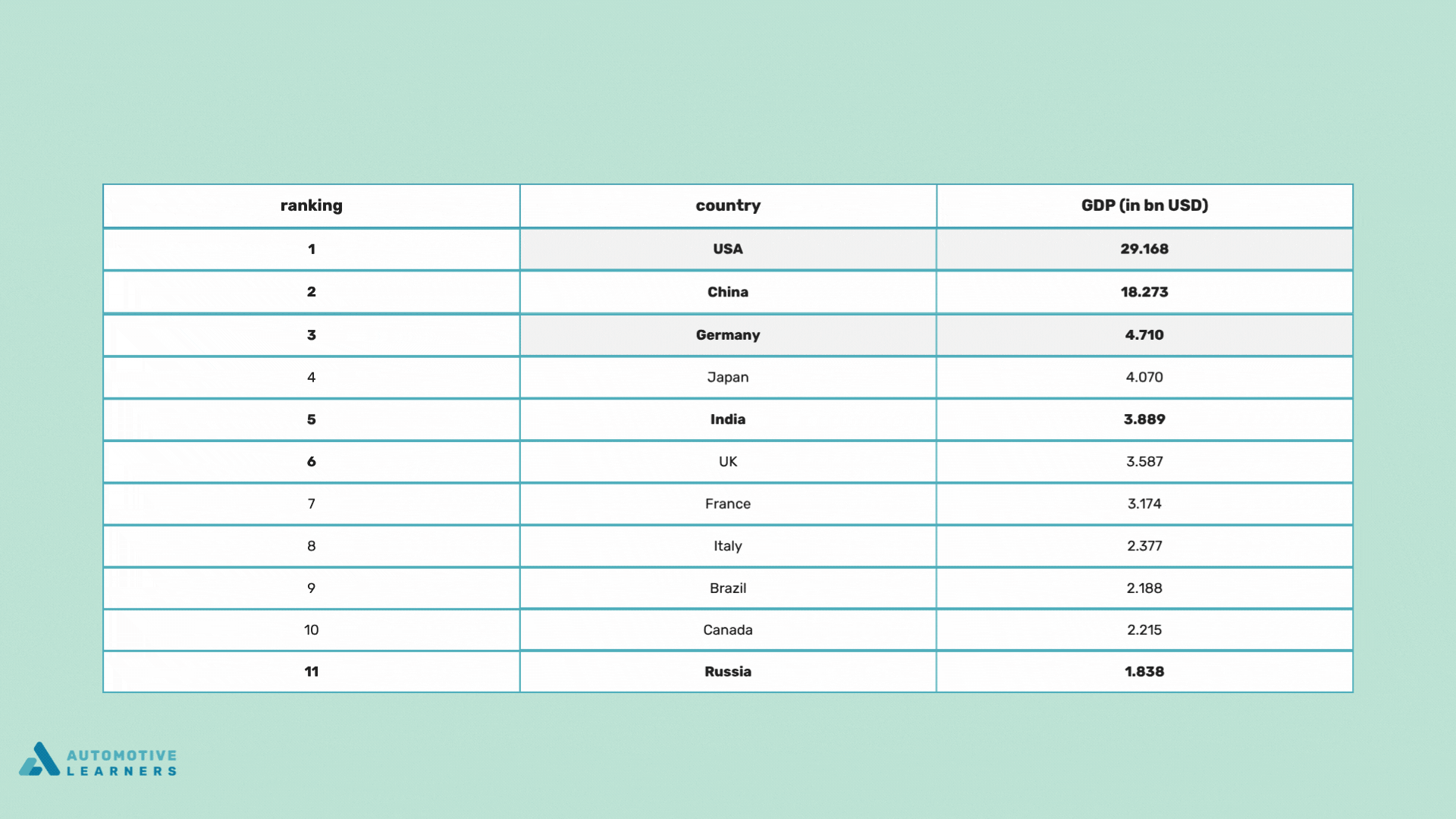China has created a dilemma for the West, which feels superior.
To be precise: there are several interlocking dilemmas in different dimensions. Think of electric cars and China's dominance in battery technology. Or rare earths, which make all armament plans in the West impossible. Or the current supply blockade in the Nexperia drama, which has triggered the next chip crisis among manufacturers. With hindsight, one wonders: why didn't we see this and do something about it?
In a series of articles, I would like to examine which ideas and information and planning processes for capital allocation have enabled China to develop technologies that already dominate it economically today. Why? Because China is the largest car market in the world and is increasingly dominating our industry.
China already dominates the world today.
This requires an unbiased view. Of course, China is run by the Communist Party in a one-party system. President X is apparently currently working with his "inner circle" of 11 people on the next 5-year plan.
It is also true that this is at odds with the country's capitalist orientation and the Communist Manifesto. But China is already the second largest economy by GDP. In terms of GDP adjusted for purchasing power, which is more important for investment in infrastructure, education, research, and the military, China is already number one.
Worldwide.

The position of the G7 countries in terms of GDP adjusted for purchasing power is surprisingly inferior to that of China, India, and Russia. Trend: China never ceases to surprise; on January 21, 2025, after President Trump announced the investment of USD 500 billion in artificial intelligence, DeepSeek emerged in the same week.
Planned economy beats market economy? That can't be right. This contradiction is blatant. There is something wrong with the story of a centrally governed, communist country that restricts the freedom of its inhabitants. What is the source of China's strength?
What makes China different from what we previously believed?
I found a clue in a podcast by Lex Fridman. He interviewed Keyu Jin, a professor at the London Business School. She is the daughter of China's former finance minister. She moved to the USA at the age of 14 and worked for the World Bank, the IMF, and the FED and is now on the board of Credit Suisse.
The most serious mistake, she says, is the assumption that everything in China is centrally governed and regulated. The opposite is true.
She reports that the mayors are responsible for the overall development of their communities. This includes aspects of infrastructure, education, safety, and, in particular, the economy.
China's decentralized mayoral economy 市长经济
The mayors act like the CEOS of a territory. They must have a strategy, form partnerships, and find investors to locate industries that create jobs and pay taxes to the municipalities. The focus is on local GDP. They are in exchange and in competition. What works in one city is adopted in others.
What works is tried out and then quickly copied and scaled up. Those that generate more growth rise faster. There is a clear performance appraisal system for mayors, known as 绩效考核.
Mayors and their municipalities are in a career competition. Anyone who fails to make progress, misses their targets, or has dissatisfied citizens is removed from office. And punished for offenses.
We are familiar with the principle of corporate division. The profit center structure is an important principle in corporate division. Clear responsibilities, unambiguous metrics, and logical incentives enable decentralized control in pursuit of a central plan.
China employs the fast break strategy, while the West employs set play.
In basketball, there is the so-called fast break: as soon as a team gains possession of the ball, all players sprint forward in a flash to score before the opposing defense can form up. It's not about the perfect, rehearsed set play, but about switching quickly—about immediately exploiting every opportunity that presents itself.
Jin transfers this idea to the Chinese economy. Entrepreneurs and investors in China act according to the same principle: anything that promises short-term turnover or profit is implemented without hesitation. Speed counts more than perfection or long-term planning. The underlying thinking is, "Better to try out ten opportunities quickly and monetize six of them immediately than to pursue a grand vision slowly and riskily."
In economic terms, China stands for the principle of the fast break: high speed, short-term profits, and "try & monetize fast." The West, on the other hand, operates more like a set play in basketball—with longer planning, a stronger focus on sustainable strategies, and a clearer role for regulation.
We are in a competitive environment, and many roads lead to Rome.
Growth and prosperity come from tapping into human ingenuity and creativity. This can be refined through education, and the right incentives can be scaled up. But in any case, there needs to be room for development.
For us in the West, this means two things: the first is the realization that many paths lead to a similar result. It is by no means the case that only Western democracy leads to prosperity and so on. The systems theorist Ludwig von Bertalanffy calls this equifinality: different initial states can lead to the same final state. Don't forget: China is already number 1 in the world in terms of CPP GDP.
In addition, we are in a competition whose rules we do not set. It is a competition for the greatest economic power and the most extensive influence. We are competing for the most sustainable investments in education, infrastructure, and security. Of course, no one should cut off the branch they are sitting on. That is why nature conservation and the avoidance of CO₂ emissions are important goals for all countries, both in the West and in the Global South.
And that means let them do it. Let them pursue their plan. Because what else can we do, and how can we learn from them? We are in competition and have to deal with more important things again than the ban on plastic straws and the question of whether vegan schnitzel is allowed. It's about the big picture—how we set priorities and what we invest money in.
In the next article, I will take a closer look at China's central planning: How does a Chinese 5-year plan work? The planned economy of the USSR and the GDR is blamed for the decline of both states.
The question is: what do the Chinese do differently, and what can we learn from this?
 Car Industry
Car Industry

 Car Industry
Car Industry
 Change Tools
Change Tools
